Abstract
A sample of 99 early treated phenylketonuric children showed higher levels of behavioural deviance than 197 matched controls. For boys this excess of behavioural deviance persisted when IQ was taken into account. For phenylketonuric girls however it was restricted to those with IQs less than 70. The type of behavioural deviance shown by the boys over the whole IQ range was predominantly neurotic. The levels of behavioural deviance found in phenylketonuric children were among the highest that have been reported for children with various handicapping conditions.
Full text
PDF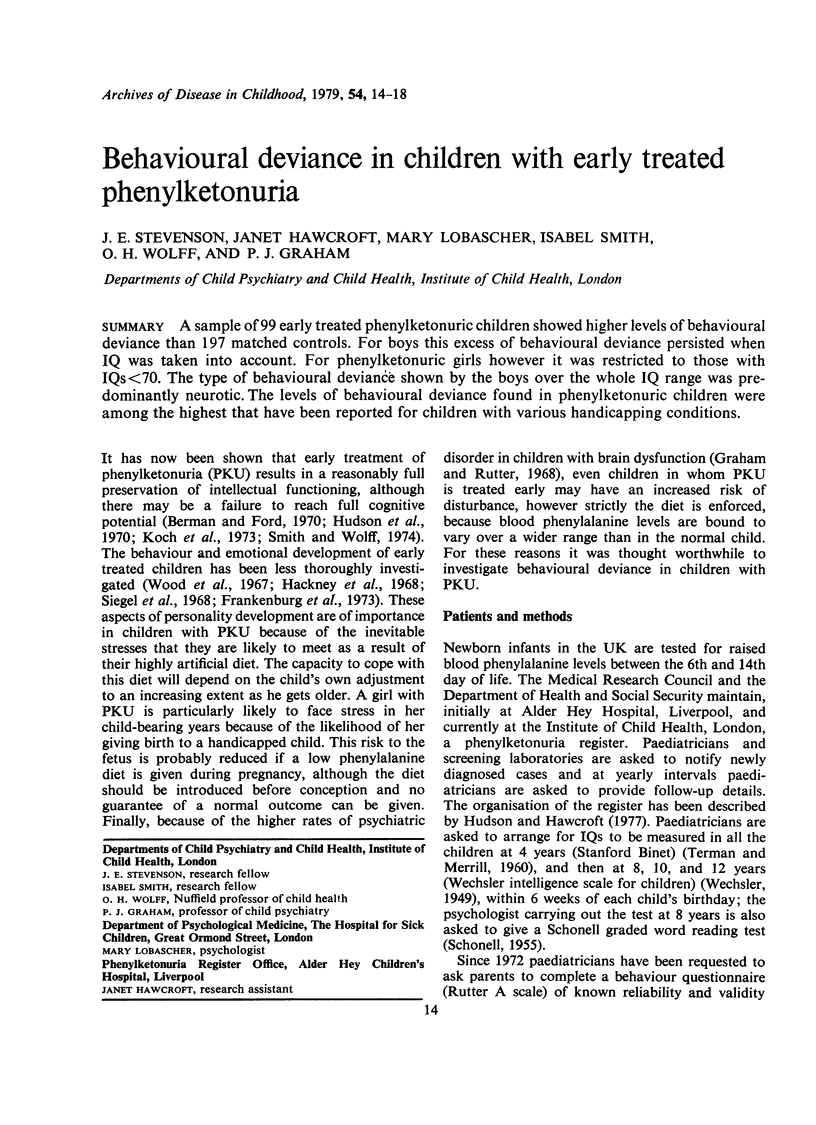
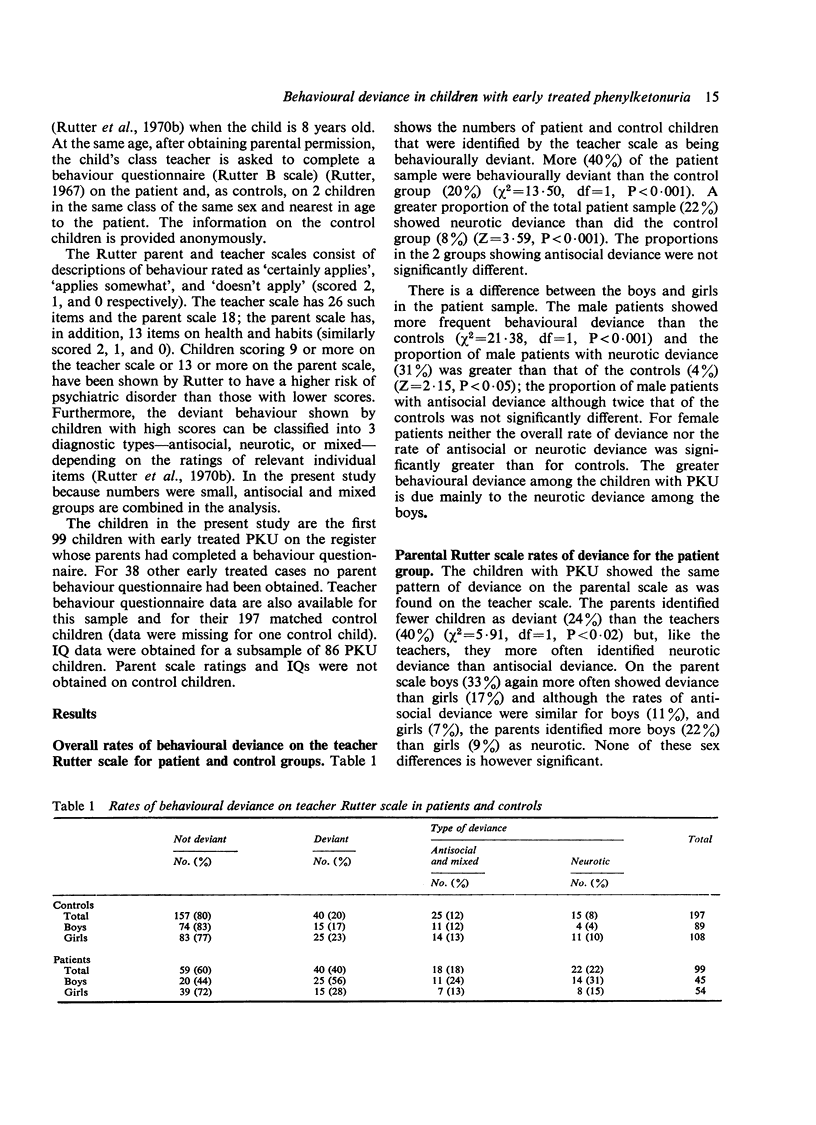
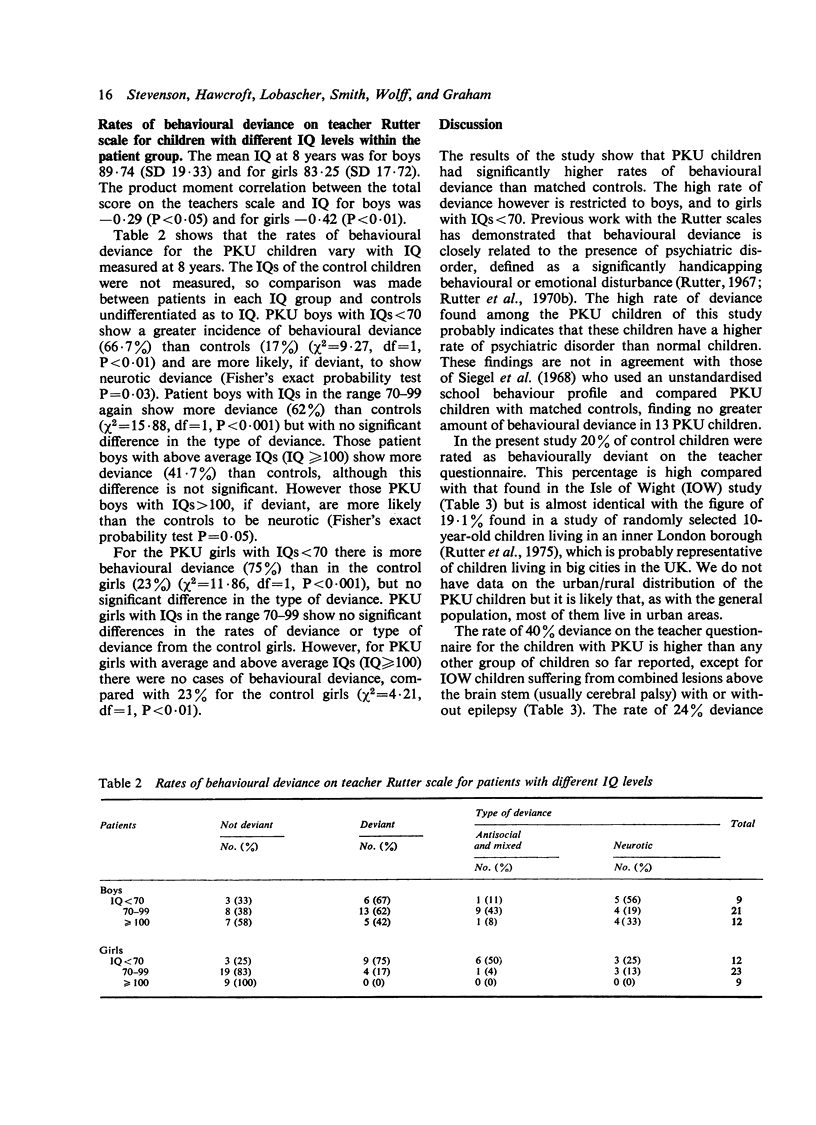
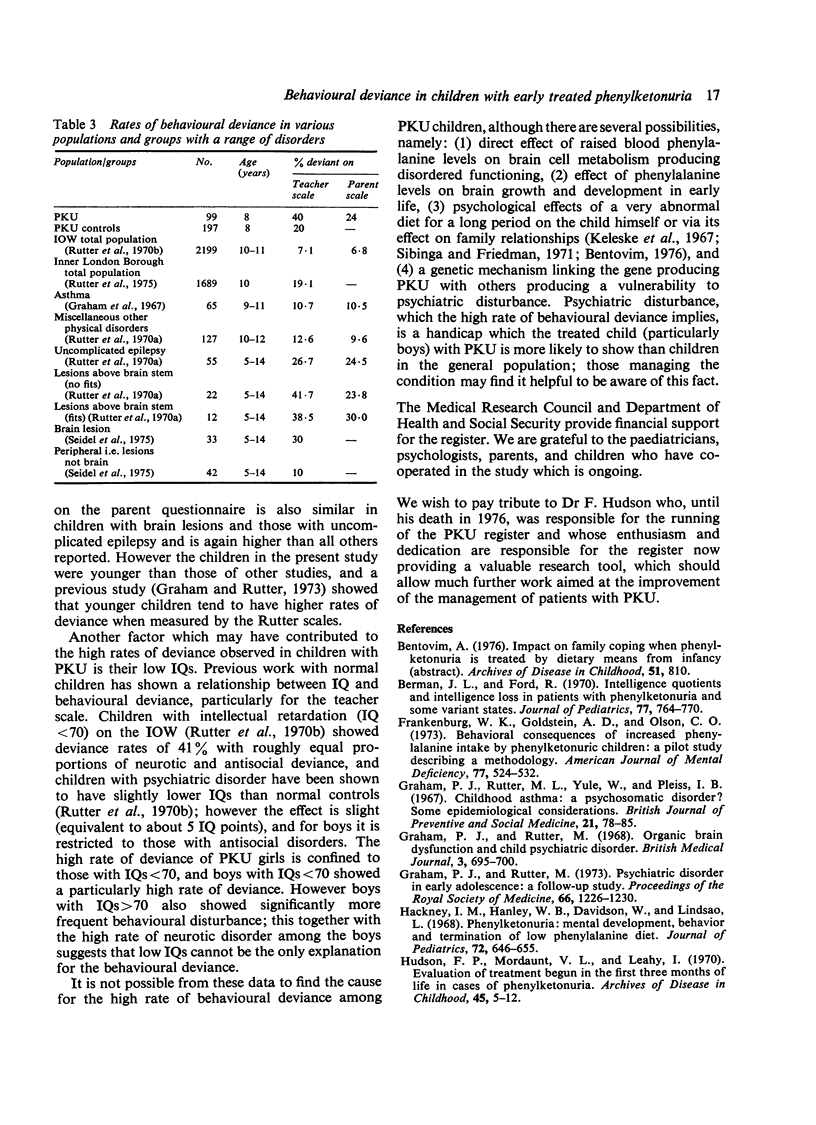
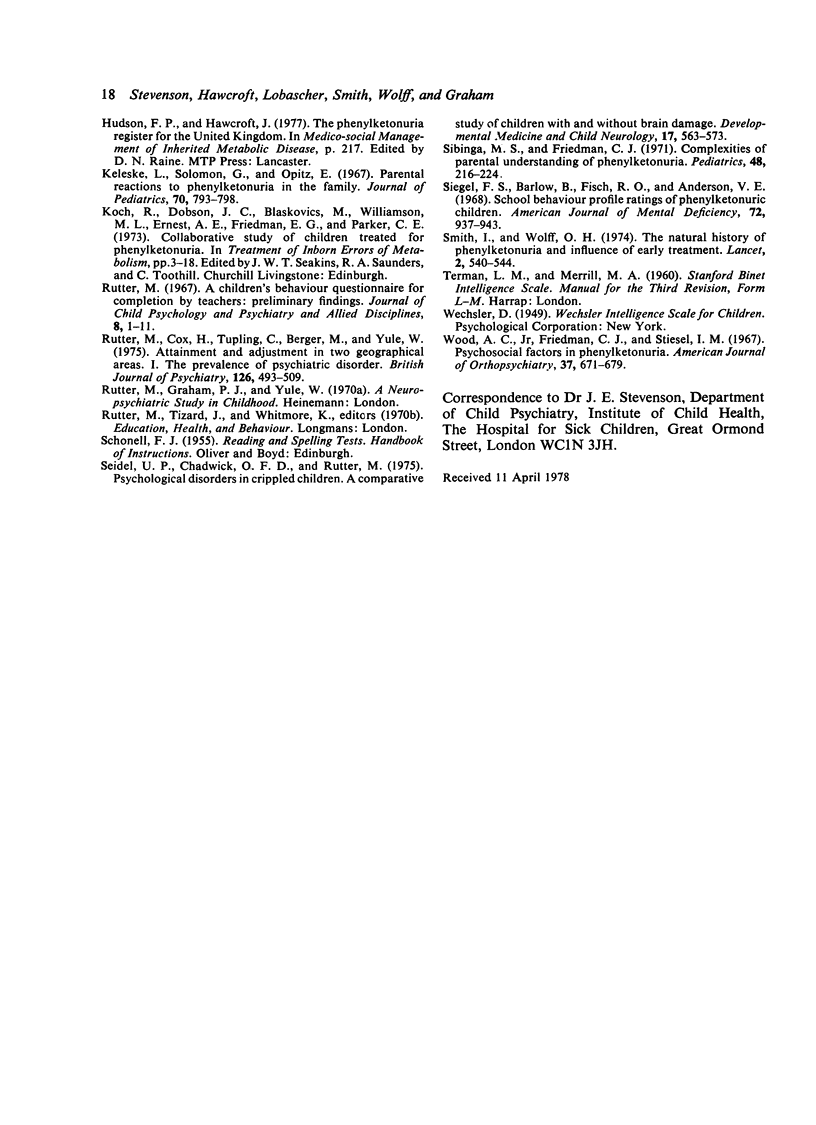
Selected References
These references are in PubMed. This may not be the complete list of references from this article.
- Berman J. L., Ford R. Intelligence quotients and intelligence loss in patients with phenylketonuria and some variant states. J Pediatr. 1970 Nov;77(5):764–770. doi: 10.1016/s0022-3476(70)80233-5. [DOI] [PubMed] [Google Scholar]
- Frankenburg W. K., Goldstein A. D., Olson C. O. Behavioral consequences of increased phenylalanine intake by phenylketonuric children: a pilot study describing a methodology. Am J Ment Defic. 1973 Mar;77(5):524–532. [PubMed] [Google Scholar]
- Graham P. J., Rutter M. L., Yule W., Pless I. B. Childhood asthma: a psychosomatic disorder? Some epidemiological considerations. Br J Prev Soc Med. 1967 Apr;21(2):78–85. doi: 10.1136/jech.21.2.78. [DOI] [PMC free article] [PubMed] [Google Scholar]
- Graham P., Rutter M. Organic brain dysfunction and child psychiatric disorder. Br Med J. 1968 Sep 21;3(5620):695–700. doi: 10.1136/bmj.3.5620.695. [DOI] [PMC free article] [PubMed] [Google Scholar]
- Graham P., Rutter M. Psychiatric disorder in the young adolescent: a follow-up study. Proc R Soc Med. 1973 Dec;66(12):1226–1229. [PMC free article] [PubMed] [Google Scholar]
- Hackney I. M., Hanley W. B., Davidson W., Lindsao L. Phenylketonuria: mental development, behavior, and termination of low phenylalanine diet. J Pediatr. 1968 May;72(5):646–655. doi: 10.1016/s0022-3476(68)80007-1. [DOI] [PubMed] [Google Scholar]
- Hudson F. P., Mordaunt V. L., Leahy I. Evaluation of treatment begun in first three mohs oflife in 184 cases of phenylketonuria. Arch Dis Child. 1970 Feb;45(239):5–12. doi: 10.1136/adc.45.239.5. [DOI] [PMC free article] [PubMed] [Google Scholar]
- Keleske L., Solomons G., Opitz E. Parental reactions to phenylketonuria in the family. J Pediatr. 1967 May;70(5):793–798. doi: 10.1016/s0022-3476(67)80333-0. [DOI] [PubMed] [Google Scholar]
- Rutter M. A children's behaviour questionnaire for completion by teachers: preliminary findings. J Child Psychol Psychiatry. 1967 May;8(1):1–11. doi: 10.1111/j.1469-7610.1967.tb02175.x. [DOI] [PubMed] [Google Scholar]
- Rutter M., Cox A., Tupling C., Berger M., Yule W. Attainment and adjustment in two geographical areas. I--The prevalence of psychiatric disorder. Br J Psychiatry. 1975 Jun;126:493–509. doi: 10.1192/bjp.126.6.493. [DOI] [PubMed] [Google Scholar]
- Seidel U. P., Chadwick O. F., Rutter M. Psychological disorders in crippled children. A comparative study of children with and without brain damage. Dev Med Child Neurol. 1975 Oct;17(5):563–573. doi: 10.1111/j.1469-8749.1975.tb03522.x. [DOI] [PubMed] [Google Scholar]
- Sibinga M. S., Friedman C. J. Complexities of parental understanding of phenylketonuria. Pediatrics. 1971 Aug;48(2):216–224. [PubMed] [Google Scholar]
- Siegel F. S., Balow B., Fisch R. O., Anderson V. E. School behavior profile ratings of phenylketonuric children. Am J Ment Defic. 1968 May;72(6):937–943. [PubMed] [Google Scholar]
- Smith I., Wolff O. H. Natural history of phenylketonuria and influence of early treatment. Lancet. 1974 Sep 7;2(7880):540–544. doi: 10.1016/s0140-6736(74)91873-x. [DOI] [PubMed] [Google Scholar]
- Wood A. C., Jr, Friedman C. J., Steisel I. M. Psychosocial factors in phenylketonuria. Am J Orthopsychiatry. 1967 Jul;37(4):671–679. doi: 10.1111/j.1939-0025.1967.tb00508.x. [DOI] [PubMed] [Google Scholar]


